
The Majestic Vistas of Poon Hill
Poon Hill, situated in the Annapurna mountain range of Nepal, is one of the most popular trekking destinations. Known for its breathtaking panoramic views of the Himalayas, Poon Hill stands at an altitude of 3,210 meters. The sunrise view from this vantage point is nothing short of magical, as the first rays of sunlight illuminate the peaks of Dhaulagiri and Annapurna, painting the sky in hues of orange and pink. The trek to Poon Hill is accessible to most trekkers, making it an excellent choice for both beginners and experienced hikers. The journey typically begins from Nayapul and passes through charming villages, lush forests, and terraced fields. Along the way, you will have the chance to experience the warm hospitality of the Gurung and Magar communities, who are known for their rich culture and traditions. Apart from its natural beauty, Poon Hill offers a unique opportunity to immerse yourself in the local way of life. You can stay in cozy teahouses, savor traditional Nepali cuisine, and learn about the region's history and customs. Whether you are an avid photographer, a nature lover, or simply seeking a peaceful retreat, Poon Hill is a destination that promises an unforgettable experience.
Local tips in Poon Hill
- Start your trek early in the morning to catch the sunrise at Poon Hill.
- Carry adequate layers of clothing as temperatures can drop significantly at higher altitudes.
- Stay hydrated and carry water purification tablets to ensure safe drinking water.
- Bring a good camera or smartphone to capture the stunning views.
- Respect local customs and traditions when visiting villages along the trek.
- Consider hiring a local guide to enrich your trekking experience with insights about the region.
The Majestic Vistas of Poon Hill
Poon Hill, situated in the Annapurna mountain range of Nepal, is one of the most popular trekking destinations. Known for its breathtaking panoramic views of the Himalayas, Poon Hill stands at an altitude of 3,210 meters. The sunrise view from this vantage point is nothing short of magical, as the first rays of sunlight illuminate the peaks of Dhaulagiri and Annapurna, painting the sky in hues of orange and pink. The trek to Poon Hill is accessible to most trekkers, making it an excellent choice for both beginners and experienced hikers. The journey typically begins from Nayapul and passes through charming villages, lush forests, and terraced fields. Along the way, you will have the chance to experience the warm hospitality of the Gurung and Magar communities, who are known for their rich culture and traditions. Apart from its natural beauty, Poon Hill offers a unique opportunity to immerse yourself in the local way of life. You can stay in cozy teahouses, savor traditional Nepali cuisine, and learn about the region's history and customs. Whether you are an avid photographer, a nature lover, or simply seeking a peaceful retreat, Poon Hill is a destination that promises an unforgettable experience.
When is the best time to go to Poon Hill?
Iconic landmarks you can’t miss
Ghode Pani Bazaar
Experience the breathtaking beauty and cultural richness of Ghode Pani Bazaar, the gateway to Nepal's stunning Poon Hill trek.
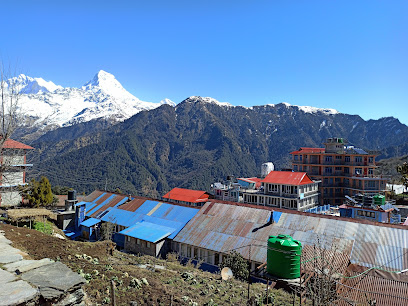
Ghorepani
Explore the stunning landscapes and rich culture of Ghorepani, a gateway to the majestic Annapurna mountain range in Nepal.
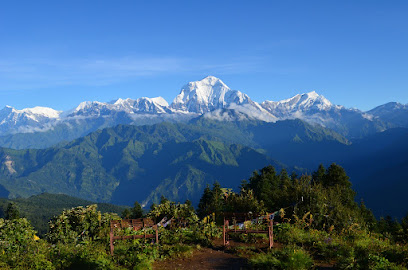
Ghorepani Poon Hill Trek
Discover the breathtaking beauty of the Himalayas on the Ghorepani Poon Hill Trek, a perfect blend of adventure and cultural immersion.
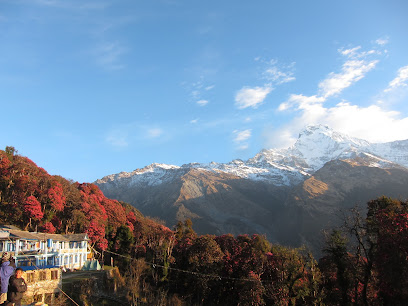
Poon Hill View Point
Discover the mesmerizing Poon Hill View Point for breathtaking Himalayan views, stunning sunrises, and unforgettable trekking experiences in Nepal.
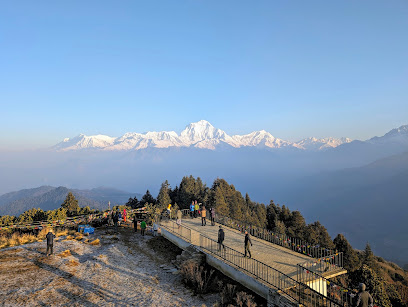
Unmissable attractions to see
Annapurna Conservation Area
Explore the breathtaking landscapes, vibrant cultures, and exquisite wildlife of Annapurna Conservation Area, a gem in Nepal's natural heritage.
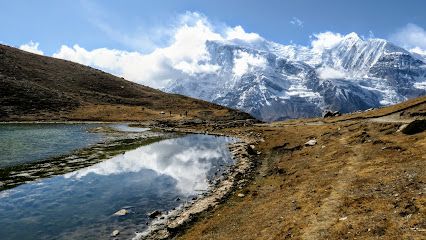
Kalika Bhagwati Temple, Nepal
Explore the divine beauty and cultural richness of Kalika Bhagwati Temple in Baglung, Nepal – a must-visit destination for spiritual seekers and travelers.
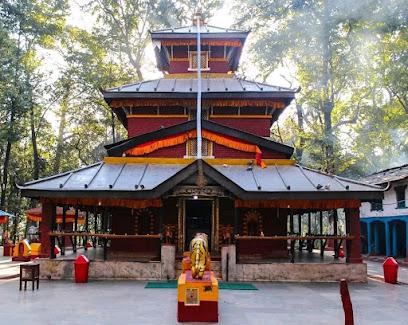
Ghode Pani Bazaar
Explore Ghode Pani Bazaar, the gateway to Poon Hill, where vibrant markets meet breathtaking Himalayan views.
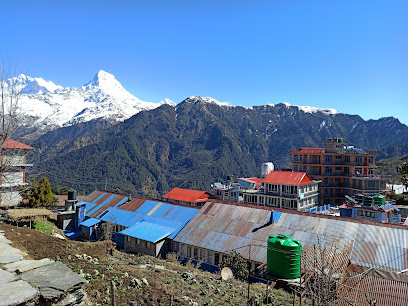
Ghorepani
Experience the breathtaking views and rich culture of Ghorepani, the gateway to the Annapurna region's stunning treks and Poon Hill's iconic sunrise.
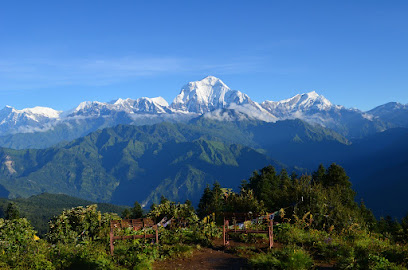
Narchyang Waterfalls
Discover the serene beauty of Narchyang Waterfalls, a stunning natural attraction in Nepal, perfect for adventure seekers and nature lovers.
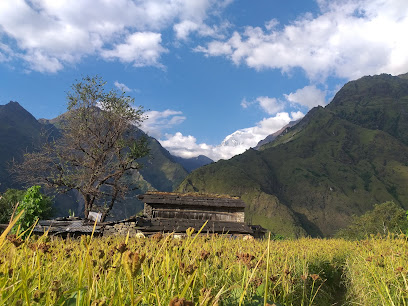
Pitam Deurali View Point
Discover awe-inspiring vistas at Pitam Deurali View Point in Lumle, Nepal, a picturesque escape for nature enthusiasts and photographers.
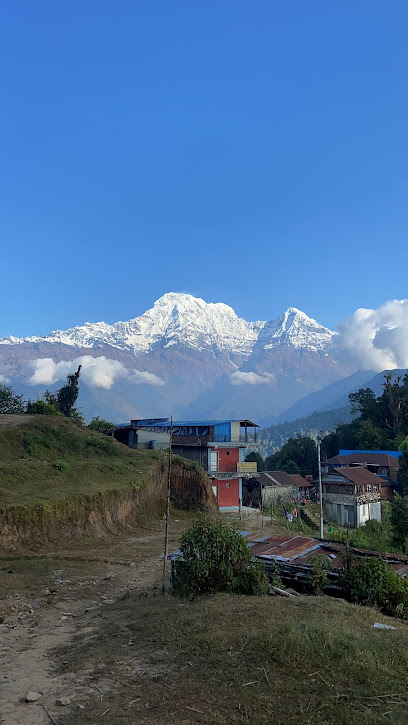
Mahaveer Waterfall
Experience the breathtaking beauty of Mahaveer Waterfall, a serene natural gem in Histan Mandali, perfect for nature lovers and adventure seekers.
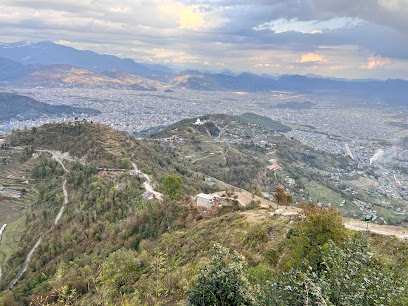
Australian Base Camp View Point
Discover the stunning panoramic views of the Annapurna mountain range at the Australian Base Camp View Point in Dhampus, Nepal.
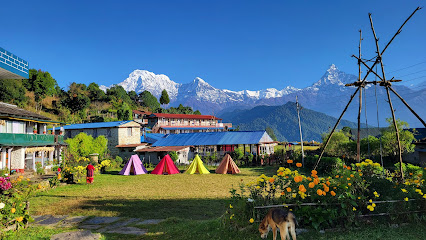
Mulde Viewpoint
Explore the breathtaking beauty of Mulde Viewpoint, where the majestic Annapurna range meets stunning landscapes in Nepal's Ghandruk region.
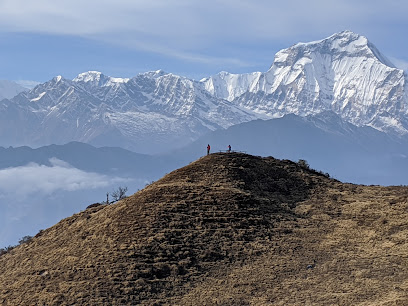
Ghorepani Poon Hill Trek
Experience breathtaking views and rich culture on the Ghorepani Poon Hill Trek, a stunning hiking adventure in Nepal's Annapurna region.
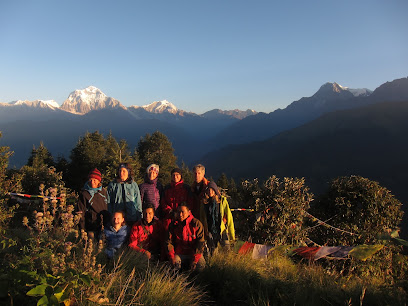
Deurali Pass
Explore Deurali Pass, a breathtaking Himalayan destination offering stunning views, rich biodiversity, and a glimpse into local culture.
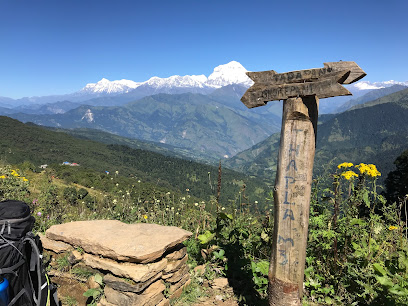
Todke Hills
Explore the breathtaking beauty of Todke Hills in Kuhun, Nepal - a perfect destination for nature lovers and adventure seekers alike.
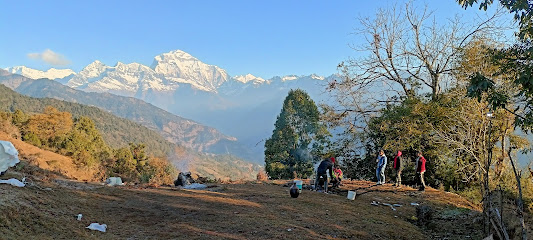
Lovely Hill View Point (Gauda)
Discover the serene beauty of Lovely Hill View Point, an idyllic destination offering stunning Himalayan views and a peaceful escape in Nepal's Annapurna region.
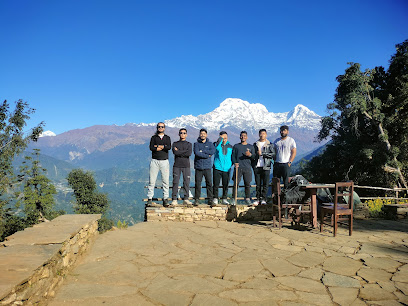
Nuwar (Puskal Aryal) House.
Explore Nuwar House in Kushma - a unique blend of history, culture, and breathtaking views that enchants every visitor.
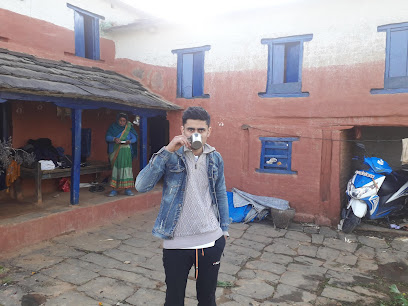
Poon Hill View Point
Experience the breathtaking sunrise over the Himalayas at Poon Hill View Point, a must-visit destination in Nepal's Annapurna region.
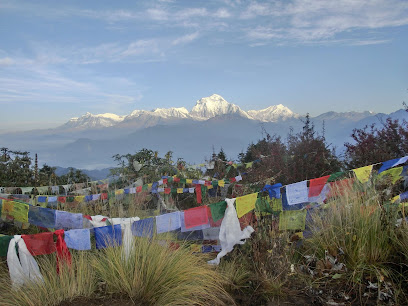
Essential places to dine
Hamro Bhandari Restaurant & Khaja Ghar
Experience authentic Nepali cuisine at Hamro Bhandari Restaurant & Khaja Ghar along the scenic Pokhara - Baglung Highway.
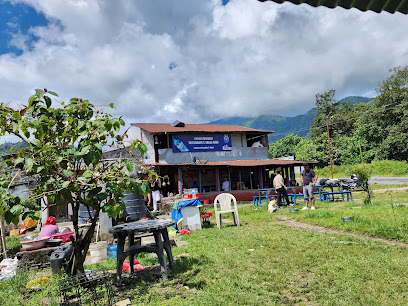
Sinuwa Lodge & Restaurant
Experience authentic Nepali cuisine with breathtaking views at Sinuwa Lodge & Restaurant in Ghandruk - A must-visit culinary destination.
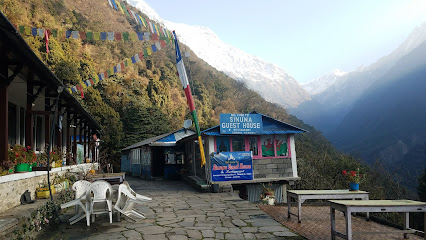
K C Khaja ghar
Discover the rich flavors of Nepalese cuisine at K C Khaja Ghar in Lumle – a must-visit dining destination for every traveler.
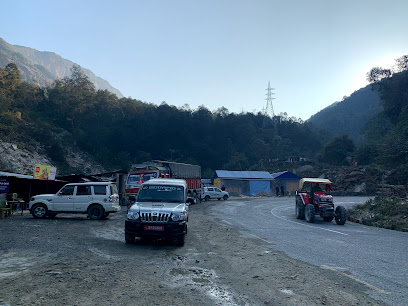
Sharma's unique Restaurant
Discover authentic Nepalese flavors at Sharma's Unique Restaurant in Pokhara - a culinary treasure showcasing local ingredients and warm hospitality.
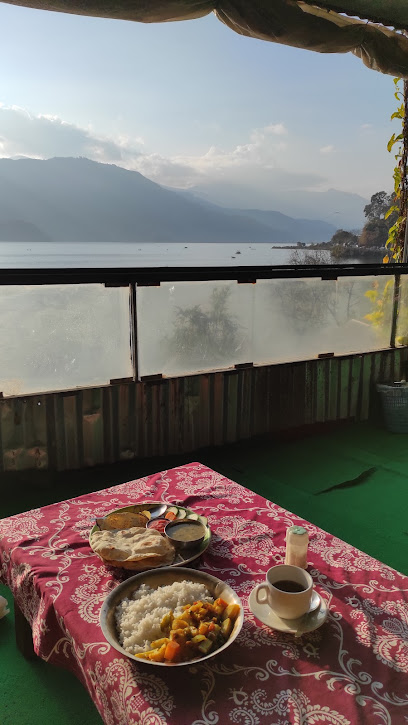
Hotel forest Camp & Restaurant
Discover tranquility and local flavors at Hotel Forest Camp & Restaurant in Lumle – where nature meets culinary delight.
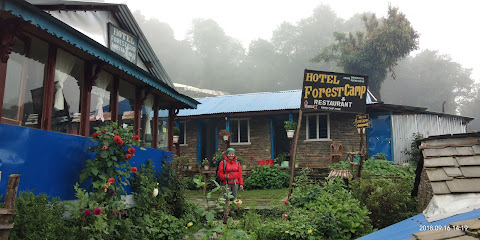
Bamboo Lodge Restaurant
Savor authentic Nepalese cuisine amidst breathtaking mountain views at Bamboo Lodge Restaurant in Ghandruk.
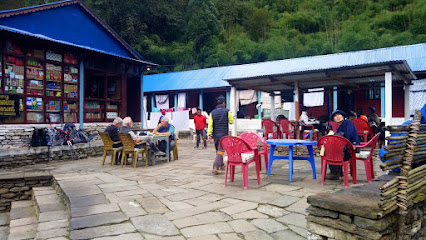
green view pothana
Discover Green View Pothana: A serene restaurant offering delectable cuisine and breathtaking mountain views in Dhampus.
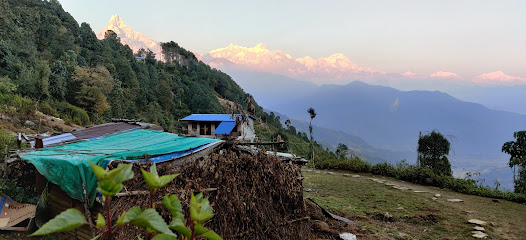
Phedi Restaurant फेदी रेष्टुरेन्ट
Experience authentic Nepali flavors at Phedi Restaurant in Pokhara, where stunning views meet delicious cuisine.
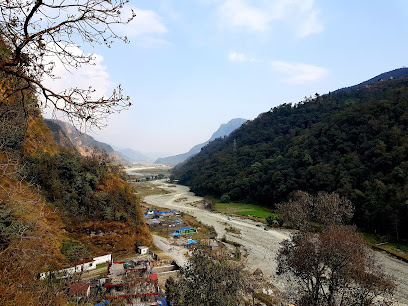
Kalpana Guest House
Discover Kalpana Guest House: A tranquil haven in Ghandruk offering authentic Nepali hospitality amidst stunning mountain views.
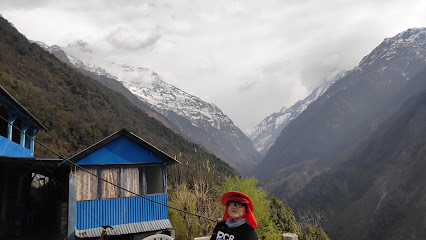
Himalayan Villa ( Home stay ) Restautent& Organic food
Experience authentic Nepali cuisine at Himalayan Villa, where organic flavors meet breathtaking views in Pokhara's serene landscape.
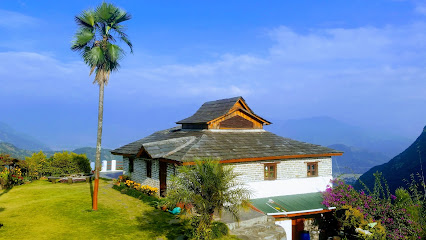
Lovely View Point Lodge
Discover authentic Nepalese cuisine with breathtaking mountain views at Lovely View Point Lodge in Ghandruk.
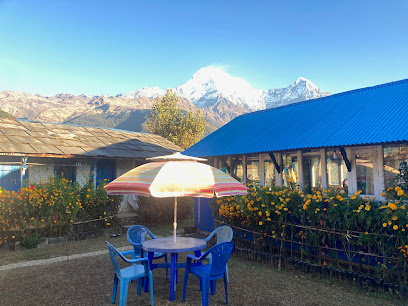
Gurung Museum And Traditional Restaurant
Experience authentic Nepali culture at Gurung Museum And Traditional Restaurant - where delicious cuisine meets rich heritage in beautiful Ghandruk.
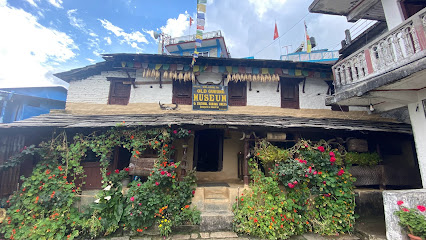
Mountain View Lodge N Restaurant
Experience authentic Nepali cuisine at Mountain View Lodge N Restaurant while enjoying stunning mountain views in Ghode Pani.
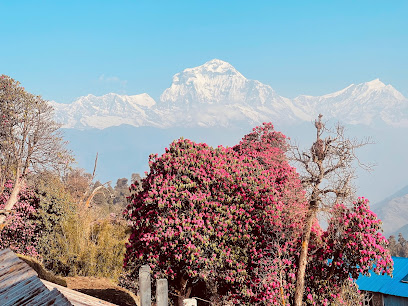
Northface Viewpoint Restaurant
Discover stunning Himalayan views and delightful cuisine at Northface Viewpoint Restaurant in Dhampus.
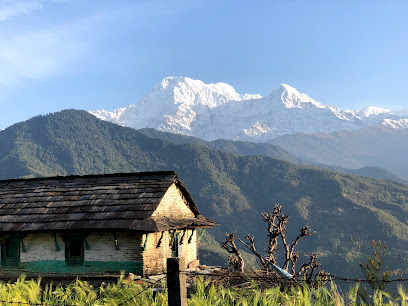
Namaste Hotel Tatopani
Discover authentic Nepali cuisine amidst stunning Himalayan vistas at Namaste Hotel Tatopani – where every meal tells a story.
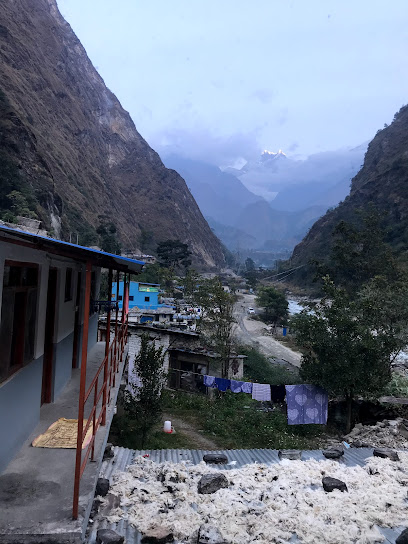
Markets, malls and hidden boutiques
Himalayan Singing Bowl
Explore the soothing world of handcrafted singing bowls in Pokhara, Nepal, at the Himalayan Singing Bowl antique store.
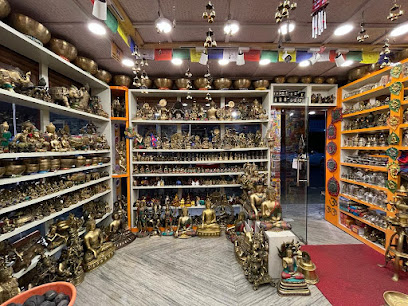
Poon Hill
Experience breathtaking sunrises and mesmerizing views at Poon Hill, a top trekking destination in the majestic Himalayas of Nepal.
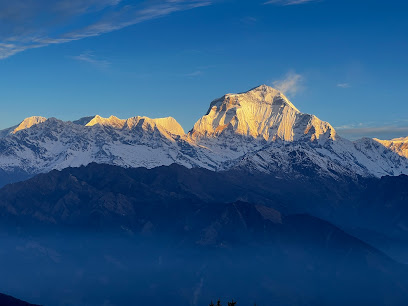
Saleways Departmental Stores
Explore Saleways Departmental Stores in Pokhara for a unique shopping experience blending local culture and diverse products.
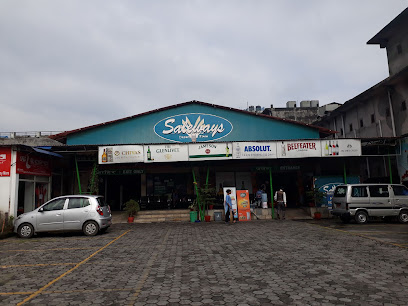
Ghorepani Poon Hill Trek
Explore the breathtaking Ghorepani Poon Hill Trek, a mesmerizing hiking experience in the heart of Nepal's majestic Annapurna region.
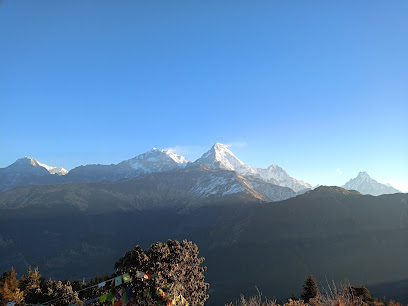
Destination Himalaya Trekking Shop
Destination Himalaya Trekking Shop: Your ultimate outdoor gear hub in Pokhara for unforgettable Himalayan adventures.
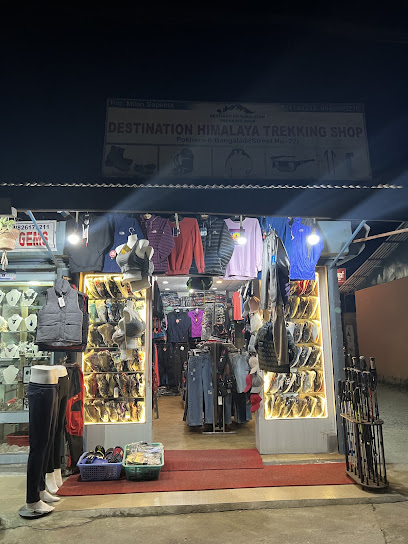
Pokhara Hemp Gallery
Discover sustainable fashion at Pokhara Hemp Gallery, where unique hemp clothing and accessories blend local craftsmanship with eco-friendliness.
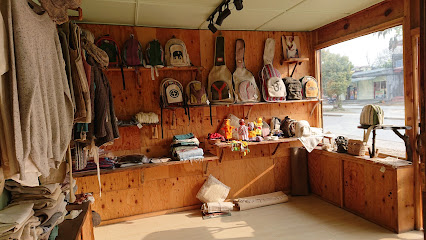
Tibetan Mini Market
Experience the charm of Tibetan Mini Market in Pokhara, where culture and shopping blend seamlessly for an unforgettable experience.
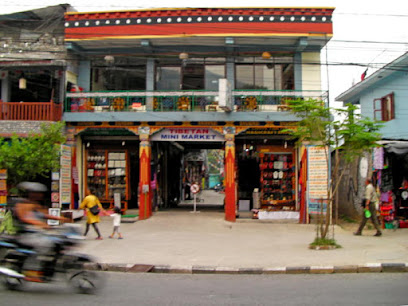
klod Fashion Exquisite
Discover unique fashion at Klod Fashion Exquisite in Pokhara, where modern trends meet traditional Nepalese style and quality craftsmanship.

Junkiri Tribal Nature
Explore unique women's clothing and accessories at Junkiri Tribal Nature in Pokhara, where local craftsmanship meets vibrant design.
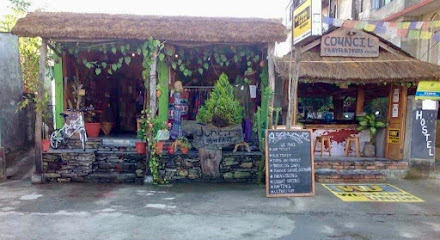
Ghorepani Trekking Shop
Discover the best outdoor gear at Ghorepani Trekking Shop in Pokhara, your hub for trekking essentials and expert advice for Himalayan adventures.
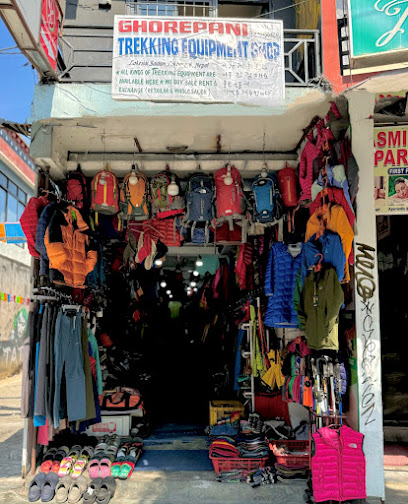
Nepal Kathmandu Pokhara
Immerse yourself in the spiritual culture of Nepal at this unique Buddhist supplies store in beautiful Pokhara.
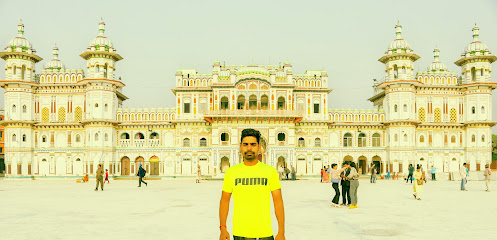
Nepali Creation Souvenirs Shop
Explore the essence of Nepal at the Nepali Creation Souvenirs Shop in Pokhara, where handcrafted treasures await every traveler.
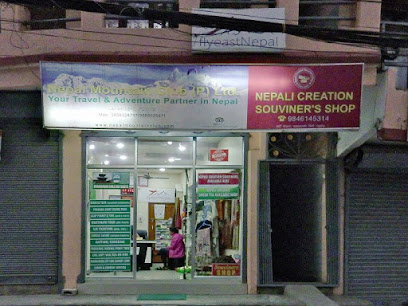
Third Pole Trekking Shop
Discover quality trekking gear and expert advice at the Third Pole Trekking Shop in Pokhara, your essential stop for adventure preparation.
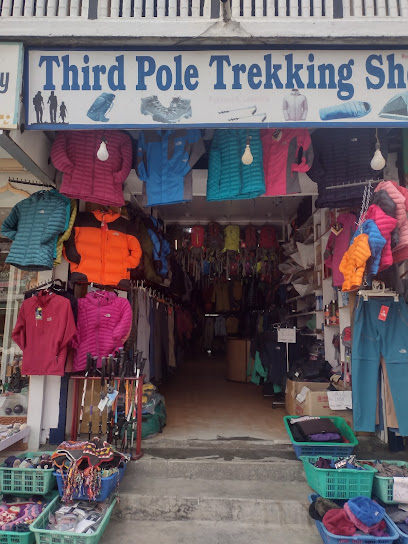
Triti Boutique
Discover unique handicrafts and local artistry at Triti Boutique in Namarjung, the perfect destination for authentic souvenirs and gifts.

Apkachi
Experience the heart of Namarjung at Apkachi, a vibrant market offering local crafts, fresh produce, and authentic Nepalese culture.

Essential bars & hidden hideouts
Busy Bee Cafe
Discover the lively atmosphere of Busy Bee Cafe in Pokhara, where delicious food meets vibrant nightlife and live music.
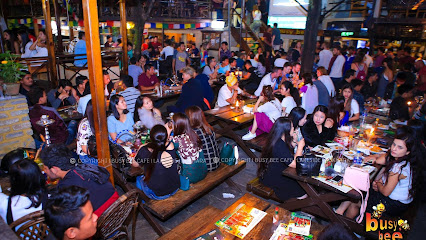
Krazy Gecko
Discover the vibrant atmosphere and delicious menu at Krazy Gecko, Pokhara's premier bar and restaurant for an unforgettable dining experience.
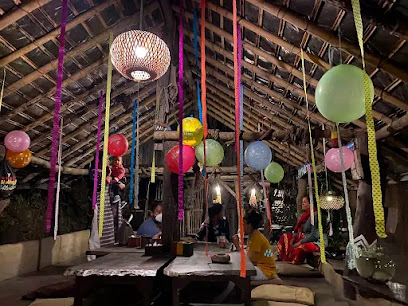
Paradiso Pokhara
Experience vibrant nightlife and delicious cuisine at Paradiso Pokhara, your go-to bar and restaurant in the heart of Lakeside.
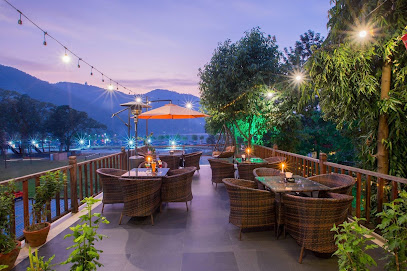
Irish Pub
Discover the lively Irish Pub in Pokhara – a perfect blend of delicious food, drinks, and vibrant nightlife amidst breathtaking lakeside views.
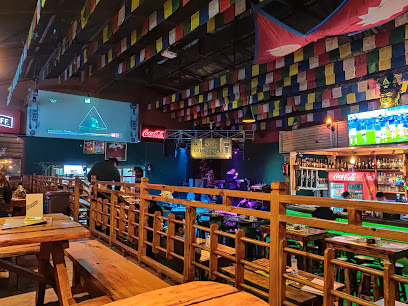
Dunga Restro & Lounge Bar
Experience the perfect blend of local flavors and international cuisine at Dunga Restro & Lounge Bar, overlooking the serene lakeside in Pokhara.
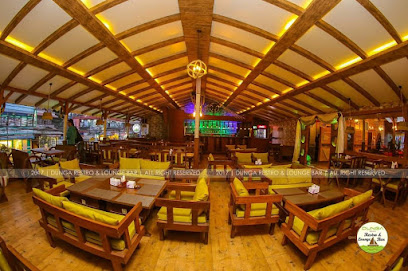
Sundown by Karma
Experience the tranquil charm of Sundown by Karma, Pokhara's premier bar with stunning views and a serene atmosphere.
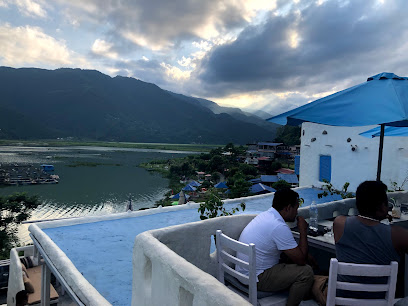
The Treasure Lounge
Discover the vibrant nightlife of Pokhara at The Treasure Lounge, where exceptional drinks and electrifying beats create unforgettable experiences.
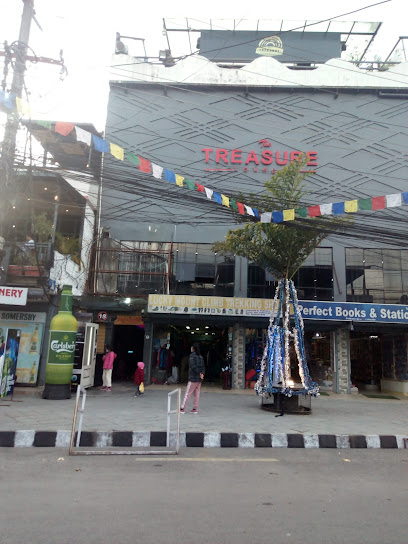
The Freedom Cafe Restaurant & Bar
Experience the flavors of Pokhara at The Freedom Cafe Restaurant & Bar, where grilled delicacies meet vibrant atmosphere and stunning views.
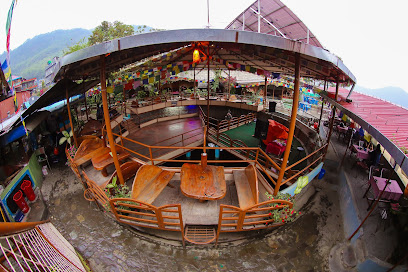
Bamboo Bar Cafe
Discover the vibrant ambiance and delightful flavors at Bamboo Bar Cafe, where cocktails meet stunning lakeside views in Pokhara.
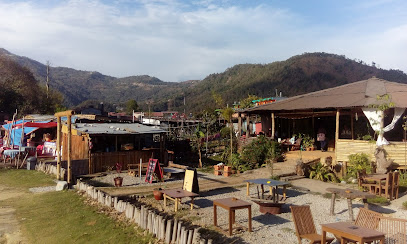
Feel Good Restro and Bar
Discover authentic Nepalese flavors in a vibrant setting at Feel Good Restro and Bar, the perfect culinary destination in Pokhara.
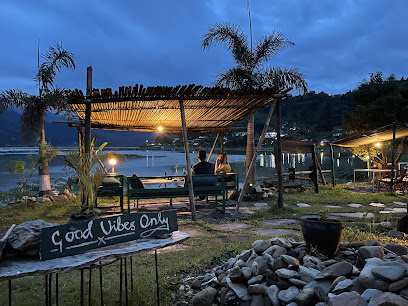
The Beach Bar and Lodge
Experience the vibrant atmosphere of The Beach Bar and Lodge in Pokhara, where relaxation meets adventure amidst stunning coastal views.
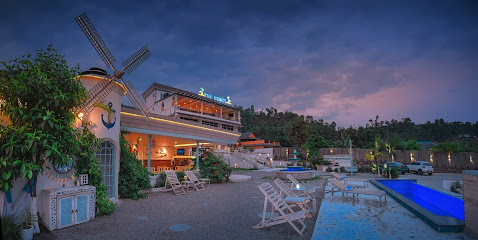
The Shore
Discover The Shore, a scenic bar and restaurant by Phewa Lake in Pokhara, offering delightful cuisine and stunning views for the perfect getaway.
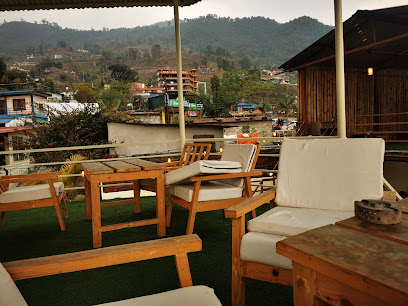
The Boss Restaurant
Discover exquisite barbecue and steak dishes at The Boss Restaurant, a lakeside gem in Pokhara, where culinary delights meet stunning views.
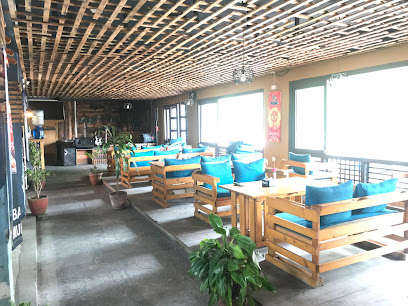
Longest Bar
Experience vibrant nightlife at the Longest Bar in Pokhara, where drinks, music, and stunning views blend for an unforgettable evening.
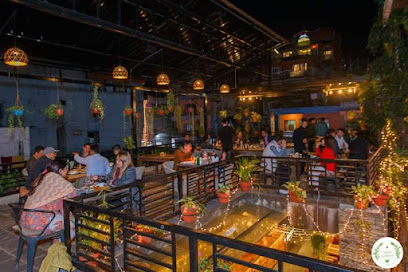
Oxygen Lounge Bar
Experience the vibrant ambiance and diverse drink offerings at Oxygen Lounge Bar in Pokhara, a perfect spot for relaxation and social gatherings.
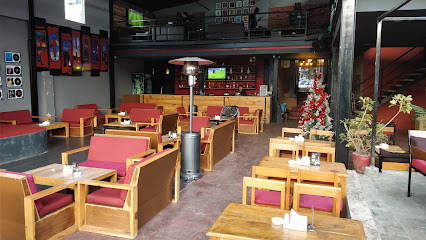
Local Phrases about Poon Hill
-
- Helloनमस्ते
[namaste] - Goodbyeफेरि भेटौं
[feri bhetau] - Yesहो
[ho] - Noहोइन
[hoin] - Please/You're welcomeकृपया
[krupaya] - Thank youधन्यवाद
[dhanyabad] - Excuse me/Sorryमाफ गर्नुहोस्
[maaf garnuhos] - How are you?तिमीलाई कस्तो छ?
[timilai kasto cha?] - Fine. And you?राम्रो छ। तिमीलाई?
[ramro cha. timilai?] - Do you speak English?तिमी अंग्रेजी बोल्छौ?
[timi angreji bolchhau?] - I don't understandमैले सम्झिन
[maile samjhin]
- Helloनमस्ते
-
- I'd like to see the menu, pleaseकृपया मेनु हेर्न चाहन्छु
[krupaya menu hern chahanchu] - I don't eat meatम भांसाको खानछैन
[ma bhansako khanchain] - Cheers!चियर्स!
[cheers!] - I would like to pay, pleaseकृपया भुक्तानी गर्न चाहन्छु
[krupaya bhuktani garna chahanchu]
- I'd like to see the menu, pleaseकृपया मेनु हेर्न चाहन्छु
-
- Help!मदत गर्नुहोस्!
[madat garnuhos!] - Go away!हट्नुहोस्!
[hatnuhos!] - Call the Police!प्रहरीलाई बोलाउ!
[praharilai bolaau!] - Call a doctor!डाक्टरलाई बोलाउ!
[daktarlai bolaau!] - I'm lostम बिरामी छु
[ma birami chu] - I'm illम बिरामी छु
[ma birami chu]
- Help!मदत गर्नुहोस्!
-
- I'd like to buy...म किन्न चाहन्छु...
[ma kinna chahanchu...] - I'm just lookingम सिर्जना गरिरहेको छु
[ma sirjana gari raheko chu] - How much is it?यो कति हो?
[yo kati ho?] - That's too expensiveयो धेरै महँगो छ
[yo dherai mahango cha] - Can you lower the price?के तपाईं मुल्य कम गर्न सक्नुहुन्छ?
[ke tapai mulya kam garn saknuhunchha?]
- I'd like to buy...म किन्न चाहन्छु...
-
- What time is it?कति बजेको छ?
[kati bajeko cha?] - It's one o'clockएक बजेको छ
[ek bajeko cha] - Half past (10)दस बजे अर्को अर्धघन्टा
[das baje arko ardghanta] - Morningबिहान
[bihan] - Afternoonदिउँसो
[diunso] - Eveningसाँझ
[sanh] - Yesterdayहिजो
[hijo] - Todayआज
[aaj] - Tomorrowभोलि
[bholi] - 1एक
[ek] - 2दुई
[dui] - 3तीन
[tin] - 4चार
[char] - 5पाँच
[panch] - 6छ
[chh] - 7सात
[sat] - 8आठ
[aath] - 9नौ
[nau] - 10दस
[das]
- What time is it?कति बजेको छ?
-
- Where's a/the...?यहाँ... कहाँ छ?
[yaha... kaha cha?] - What's the address?पत्ता के हो?
[patta ke ho?] - Can you show me (on the map)?के तपाईं मलाई देखाउन सक्छन् (नक्सामा)?
[ke tapai malai dekhaun sakchan (naksama)?] - When's the next (bus)?अर्को (बस) कहिले छ?
[arko (bas) kahile cha?] - A ticket (to ....)एक टिकट (...सम्म)
[ek tikat (...samma)]
- Where's a/the...?यहाँ... कहाँ छ?
History of Poon Hill
-
Poon Hill, located in the Annapurna region of Nepal, has a history that is deeply intertwined with the Gurung and Magar communities. These indigenous groups have inhabited the region for centuries, with their ancestral roots tracing back to Tibetan nomadic tribes. The area has long been a crossroads of cultures, where trade routes fostered a blend of traditions and practices.
-
Poon Hill's strategic location made it an important stop on ancient trade routes. These paths connected the Himalayan interior with the lowlands and the Indian subcontinent. Goods such as salt, wool, and grains were exchanged along these routes, enriching the cultural tapestry of the region. The trails around Poon Hill were not just commercial pathways but also conduits for cultural exchange.
-
The area around Poon Hill holds significant religious importance for both Buddhists and Hindus. Numerous shrines and monasteries dot the landscape, with some dating back hundreds of years. Pilgrims often visit these sacred sites, adding to the spiritual aura of the region. The local festivals, many of which are rooted in ancient religious practices, highlight the rich spiritual heritage of the area.
-
The Gurkhas, renowned for their bravery and military prowess, have a strong connection to the Poon Hill region. Many young men from the Gurung and Magar communities have historically been recruited into the Gurkha regiments. This connection has left a lasting legacy, with stories of valor and sacrifice becoming an integral part of the local folklore.
-
In the mid-20th century, Poon Hill began to gain international attention as a trekking destination. The panoramic views of the Annapurna and Dhaulagiri mountain ranges, visible from its summit, attracted adventurers and nature enthusiasts from around the world. This influx of tourists spurred the development of infrastructure, with teahouses, lodges, and guided trekking services becoming a common sight. The region has since become one of Nepal’s most popular trekking destinations.
-
With the rise in tourism, there has been a growing awareness of the need for conservation. Local communities, along with international organizations, have initiated various projects aimed at preserving the natural beauty and biodiversity of the Poon Hill region. Efforts include reforestation, waste management, and sustainable tourism practices to ensure that the area remains pristine for future generations.
Poon Hill Essentials
-
Poon Hill is located in the Annapurna region of Nepal. The nearest international airport is Tribhuvan International Airport in Kathmandu. From Kathmandu, you can take a domestic flight to Pokhara, which is the gateway to the Annapurna region. From Pokhara, you can hire a taxi or take a bus to Nayapul, the starting point of the trek to Poon Hill. The trek from Nayapul to Poon Hill typically takes about 2-3 days, passing through beautiful villages like Ghorepani.
-
Transportation in the Poon Hill area is primarily by foot, as it is a popular trekking destination. In Pokhara and Nayapul, you can find local taxis and buses. For the trek itself, hiring a local guide or porter is highly recommended. They can provide valuable knowledge about the route, culture, and help carry your equipment, making the trek more enjoyable. Ensure you have sturdy trekking shoes and necessary gear for the hike.
-
The official currency of Nepal is the Nepalese Rupee (NPR). While credit cards are accepted in major hotels and restaurants in Kathmandu and Pokhara, it is advisable to carry enough cash for the trek. ATMs are available in Kathmandu and Pokhara but are rare in trekking areas. Small tea houses and lodges along the trek usually accept cash only. It is recommended to exchange currency in Kathmandu or Pokhara before starting your trek.
-
Poon Hill is generally a safe destination for tourists. However, it is important to take standard precautions. Always trek with a group or a guide, stay on marked trails, and avoid trekking alone, especially at night. Be cautious of altitude sickness and acclimatize properly. While there are no specific high-crime areas targeting tourists, it is still advisable to keep an eye on your belongings and be aware of your surroundings.
-
In case of emergency, contact the local police by dialing 100 or the tourist police at 1144. Medical facilities are limited in trekking areas, so having travel insurance that covers medical evacuation is essential. For minor health issues, there are health posts in some villages along the trek. It is recommended to carry a basic first aid kit and be aware of the symptoms of altitude sickness. If you experience severe symptoms, descend immediately and seek medical help.
-
Fashion: Do wear appropriate clothing for trekking, including layers to adjust to changing weather. Avoid wearing overly revealing clothing. Religion: Do respect local customs and traditions. When visiting temples and monasteries, dress modestly and remove your shoes before entering. Public Transport: Do be respectful and patient when using local transport. Don't expect strict schedules as timings can be flexible. Greetings: Do greet locals with a 'Namaste' with palms pressed together. It is a common and respectful greeting. Eating & Drinking: Do try local delicacies and accept food offerings graciously. Don't waste food as it is considered disrespectful.
-
To experience Poon Hill like a local, start your trek early in the morning to witness the stunning sunrise over the Annapurna and Dhaulagiri mountain ranges. Engage with local villagers and learn about their culture and daily life. Try traditional Nepali dishes like Dal Bhat and Momos at local tea houses. Carry a reusable water bottle and use water purification tablets to avoid plastic waste. Respect the natural environment by not littering and following the Leave No Trace principles.
Nearby Cities to Poon Hill
-
Things To Do in Bandipur
-
Things To Do in Gorkha
-
Things To Do in Lumbini
-
Things To Do in Chitwan
-
Things To Do in Kathmandu
-
Things To Do in Patan
-
Things To Do in Bhaktapur
-
Things To Do in Nagarkot
-
Things To Do in Namche Bazaar
-
Things To Do in Lucknow
-
Things To Do in Patna
-
Things To Do in Varanasi
-
Things To Do in Kanpur
-
Things To Do in Darjeeling
-
Things To Do in Gangtok








